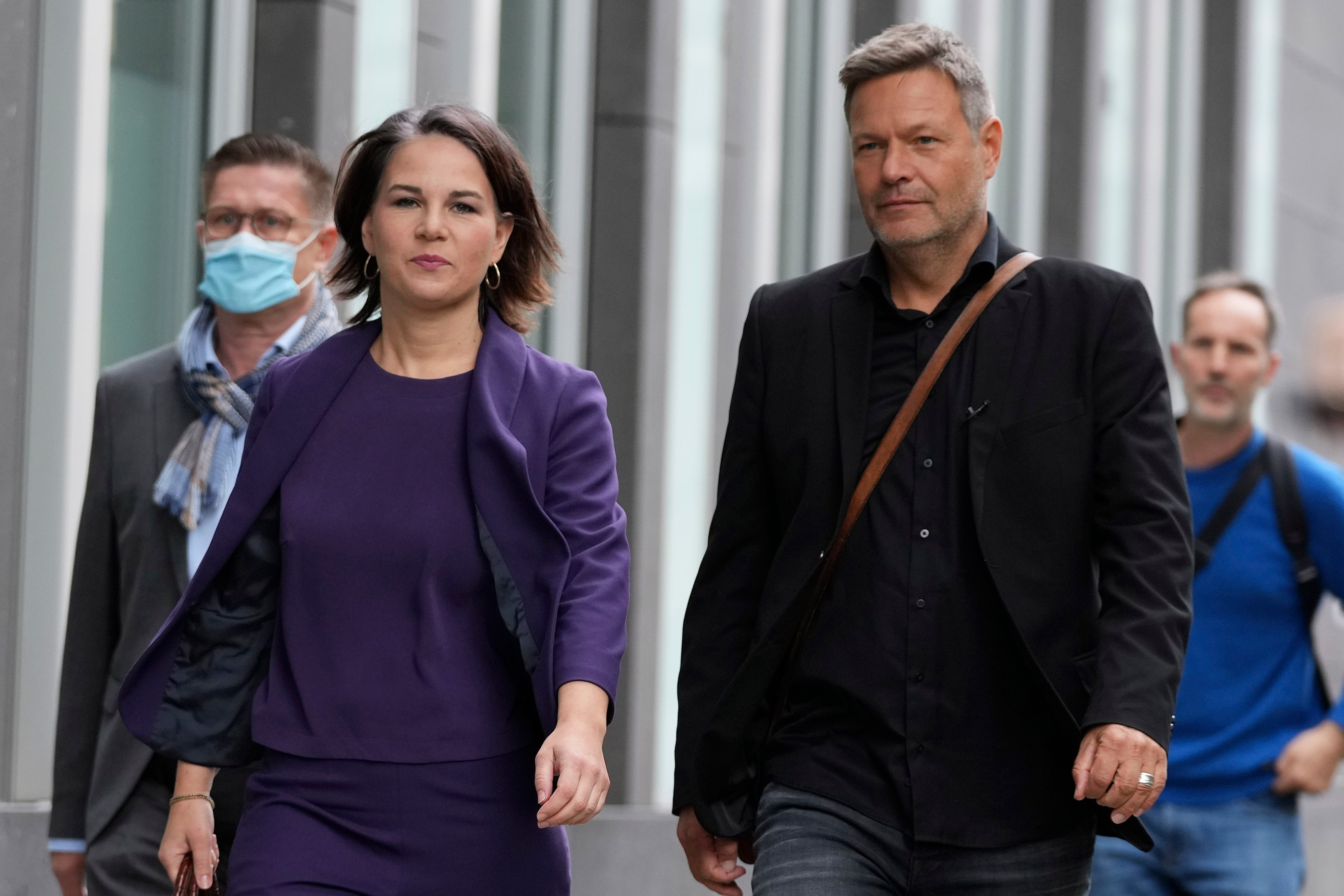German kingmakers open talks toward forming new government
The two parties that are expected to determine who will become Germany’s next chancellor have started talks to bridge their differences and declared that they got off to a good start

Your support helps us to tell the story
From reproductive rights to climate change to Big Tech, The Independent is on the ground when the story is developing. Whether it's investigating the financials of Elon Musk's pro-Trump PAC or producing our latest documentary, 'The A Word', which shines a light on the American women fighting for reproductive rights, we know how important it is to parse out the facts from the messaging.
At such a critical moment in US history, we need reporters on the ground. Your donation allows us to keep sending journalists to speak to both sides of the story.
The Independent is trusted by Americans across the entire political spectrum. And unlike many other quality news outlets, we choose not to lock Americans out of our reporting and analysis with paywalls. We believe quality journalism should be available to everyone, paid for by those who can afford it.
Your support makes all the difference.The two parties that are expected to determine who will become Germany's next chancellor have started talks to bridge their differences and declared that they got off to a good start.
Sunday's parliamentary election left Germany's traditional big parties effectively needing the support of the third- and fourth-placed parties, the environmentalist Greens and the business-friendly Free Democrats, to take the top job after outgoing Chancellor Angela Merkel s 16-year reign.
The two smaller parties decided to talk to each other first before entertaining advances from bigger suitors. While they have some common ground, they have traditionally belonged to rival ideological camps and have different approaches to issues including the economy and fighting climate change.
In recent decades, the Greens have tended toward the center-left Social Democrats of narrow election winner Olaf Scholz The Free Democrats have tended toward Merkel's center-right Union bloc, which finished second under would-be successor Armin Laschet — its worst-ever result.
In identical Instagram posts early Wednesday, Green co-leader Annalena Baerbock and Free Democrat leader Christian Lindner posted a picture of themselves with Baerbock's fellow Green leader Robert Habeck and the Free Democrats' general secretary, Volker Wissing.
“In the search for a new government, we are sounding out common ground and bridges over things that divide us — and even finding some,” the posts read. “Exciting times.”
They didn't say how or when they will proceed or give any other details. The Social Democrats have said they would like to start exploratory talks as early as this week.
The only other combination of parties that would have a majority in parliament is a repeat of the often bad-tempered outgoing “grand coalition” of the two big parties, which neither of them wants.
Merkel's current coalition came about after the 2017 election when Lindner pulled the plug on talks on a possible alliance with the chancellor's Union and the Greens.
___
Follow AP’s coverage of Germany’s election at https://apnews.com/hub/germany-election